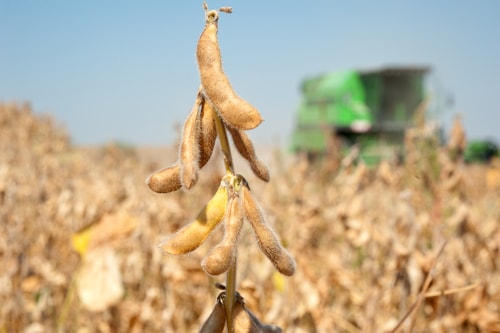Recent research conducted by the University of Guelph
By Diego Flammini
Assistant Editor, North American Content
Farms.com
New research from the University of Guelph suggests that soybean derivatives may be able to stop microbial pathogens from growing on food.
Suresh Neethirajan, director of the BioNano Laboratory said using soy isoflavones, which act as hormones and control biological activity on a cellular level, and peptides, which are part of proteins and can act as hormones or hormone producers, could benefit the food industry because some bacteria is fighting off the traditional methods.
His team’s research found that using those soybean derivatives can help limit growth of listeria and pseudomonas pathogens.

“Soy peptides and isoflavones are biodegradable, environmentally friendly and non-toxic. The demand for new ways to combat microbes is huge, and our study suggests soy-based isoflavones and peptides could be part of the solution,” he said in a press release.
“Heavy use of chemical antimicrobial agents has caused some strains of bacteria to become very resistant to them, rendering them ineffective for the most part,” said Neethirajan.
Neethirajan said the new research could have domino effects across different industries.
“This could be very beneficial to food processors, as well as the farmers who grow soybeans.”